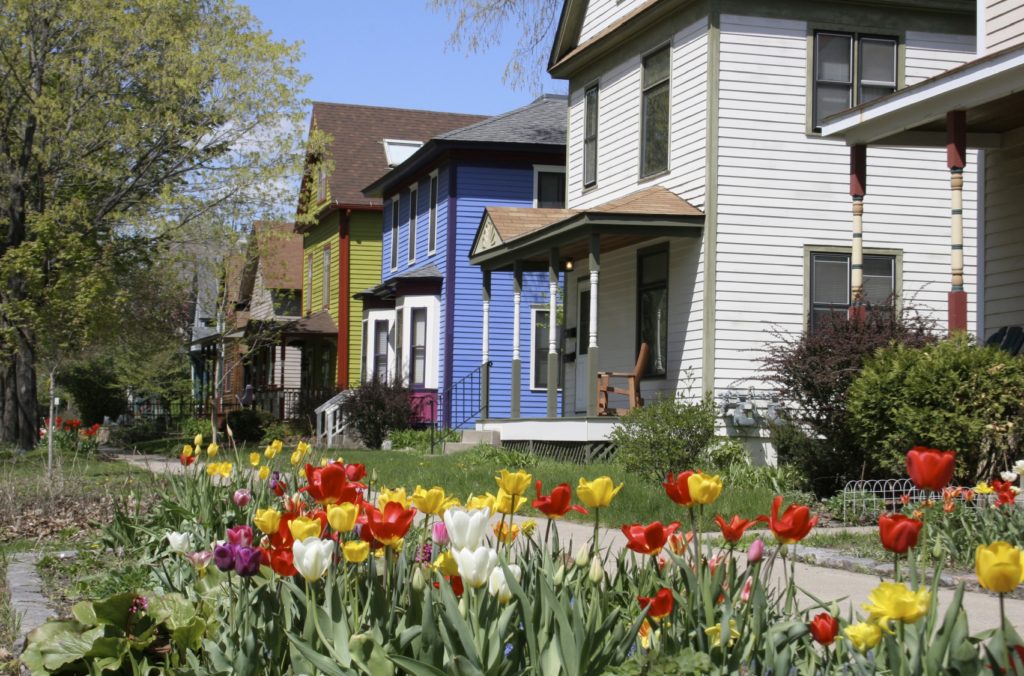Stewardship Begins in Your Backyard
Lawns comprise nearly one-quarter of urban and suburban landscapes. Caring for them responsibly by limiting the amount of water, fertilizers and pesticides we apply can have a huge impact on our health and environment. For in-depth information, please see our resources page.
- Start with a soil test. Test your soil every three to five years to help determine exactly what you need to keep it healthy.
- Fertilize organically. Switch to an organic fertilizer made from plant or animal materials. These fertilizers allow the grass to absorb nutrients gradually because excess nutrients bind to soil rather than running off into our sewers, lakes, and rivers.
- Reduce soil compaction. Construction, foot traffic and heavy rain compacts our urban soils and prevents turfgrass roots from reaching water, nutrients and air. Unlock these resources by core aerating your soil at least once in the spring and fall.
- Diversify your lawn. Turf grass requires lots of maintenance because it is not native to our region. Plant other ground cover, bushes and trees more suitable for our climate and light conditions.
- Water properly. Water deeply and infrequently early in the morning to minimize evaporation and safeguard against fungus. Ideally, you want one inch of water delivered once a week.
- Mow correctly. Mow your lawn to at least three inches high. Correct mowing will increase the strength of the root system and naturally shade out weeds.
- Banish weeds naturally. All of these proper lawn care tips will help banish weeds naturally. Other products such as corn meal gluten applied in early spring can also help.
- Hire a natural lawn care provider. Midwest Grows Green works with landscape contractors across the Midwest to provide training and resources.
- Take our Midwest Grows Green Pledge! For up-to-date natural lawn care resources and progress visit bit.ly/MGGpldg
Photo courtesy of Biodiversity Project

